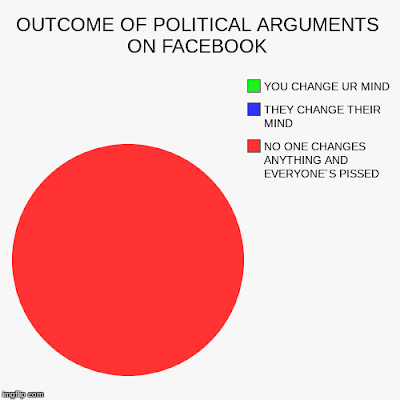Faith and Order and Blurring the Two
There are things all Christian traditions agree on (faith
questions), and areas where there are significant differences around how churches organise and describe themselves (order
questions). This is reflected in the name of the World Council of Churches
Faith and Order Commission, where theological dialogue occurs.
Mormons, Jehovah's Witnesses, Christedelphians and others
cannot join the World Council of Churches as they do not “confess the Lord Jesus Christ as God and Saviour according
to the Scriptures… to the glory of the One God, Father, Son and Holy Spirit.”
There are however a huge variety of churches that belong to the
World Council of Churches. They have diverse views on women in ministry, modes of baptism,
communion, the priesthood, the weight of scripture vs tradition, etc. These are
"order" questions, not "faith" questions.
How should Christians manage their relationships with one
another around differences over these secondary questions?
Some of Jesus’ last recorded words and prayers before his
death seem fairly emphatic:
“A new command I give you: Love one another. As I have loved
you, so you must love one another. By this everyone will know that you are my
disciples, if you love one another.” (John 13: 34 – 35)
"I pray also for those who will believe in me through their message, that all of them may be one, Father, just as you are in me and I am in you. May they also be in us so that the world may believe that you have sent me. I have given them the glory that you gave me, that they may be one as we are one— I in them and you in me—so that they may be brought to complete unity. Then the world will know that you sent me and have loved them even as you have loved me.” (John 17: 20 - 23)
A significant challenge to our expression of love and unity arises when branches of the church elevate order questions into faith
questions.
This reaches its extreme in fringe cults: “We are the only
ones with the exact truth, and therefore are the only true church.”
This is expressed in unhelpful ways within
fundamentalism: note this quote from Answers in Genesis:
“the controversy about the age of the earth is a controversy
about the authority of Scripture. If millions of years really happened, then
the Bible is false and cannot speak with authority on any issue, even the
Gospel.”
In other words, unless you interpret the bible EXACTLY as we
do on the age of the earth, you are a heretic! (This is surprising news to most Christian churches).
This kind of language exists amongst some who hold a Complementarian position: “I believe what the bible teaches!” they assert... sometimes earnestly, sometimes smugly. (Implication: the many denominations that ordain women…
Pentecostals, Baptists, Churches of Christ, Salvation Army, most Anglican
Diocese, Uniting Church etc. etc. don’t believe in the bible!)
When this kind of language and attitude is expressed, it's easy for this to degenerate into a tit-for-tat argument. Indeed, much of this blog is devoted to
explaining why I believe an egalitarian reading of scripture is more hermeneutically
sound than a hierarchical one... frequently in response to debates I've had on Facebook.
Sadly, this kind of discussion is often unproductive... especially online! What is true for political arguments is equally true for theological ones:
Rather than getting bogged down into the detail of an issue (tempting as that can be), sometimes it's appropriate to ask a different kind of question.
Is this a faith issue? Is this really central to salvation or Christian identity? Or is this an issue in which Christians can differ in good conscience? Can we recognise those who hold a different position as brothers and sisters?
When I was teaching about evolution/the age of the earth in a Christian school, I would explain how Christians have different opinions on how to interpret the first chapters of Genesis.
I noted that some believe Genesis chapters 1 and 2 should be taken literally, and that the earth is only 6000 years old. There are those who think the days of Genesis represent eras. There are those that suggest the intent of the first chapters of Genesis is theology in a story form, rather than a scientific account. (etc. etc.)
Some of my students were from families where Creation Science was elevated to an article of faith. Suggesting that Christians have different interpretations of Genesis was a gentle way of opening up new possibilities for these students. I'm sure this was confronting for them... but not as confronting, nor as career-threatening, as telling them Creation Science is wrong.
Likewise when in dialogue with those who believe there is a hierarchy in gender relationships, it can be good to step back from the detailed arguments, and remind everyone that Christian churches do come to different conclusions on this topic.
Are these issues important? Yes. Are they worthy of discussion? Yes. Do they make a difference? Yes.
Are they issues over which we can give up on being gracious? On modelling love? Are they issues on which we write people off? Dismiss them / their church as heretical?
No.
I suspect, paradoxically, we are more likely to win people over to a new way of thinking by pointing out the differences of opinion among Christian churches than by bombarding them with arguments. (Though my arguments are admittedly brilliant... ha ha!) Indeed, hitting people with facts has been shown to be a really poor way to change someone's mind... while warmth, grace and affirmation are likely to open hearts and minds to new possibilities.
What do you think? What has helped you change your mind on a topic?

Comments
https://bit.ly/2HHodqk
Everyone is "pissed". Except those wbo haven't consumed alcohol.